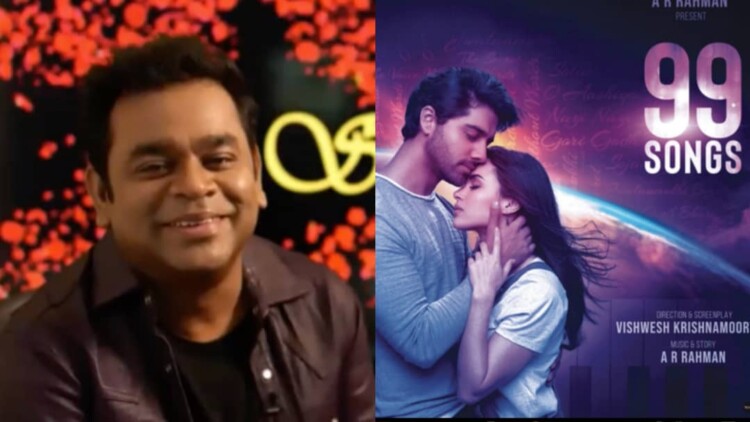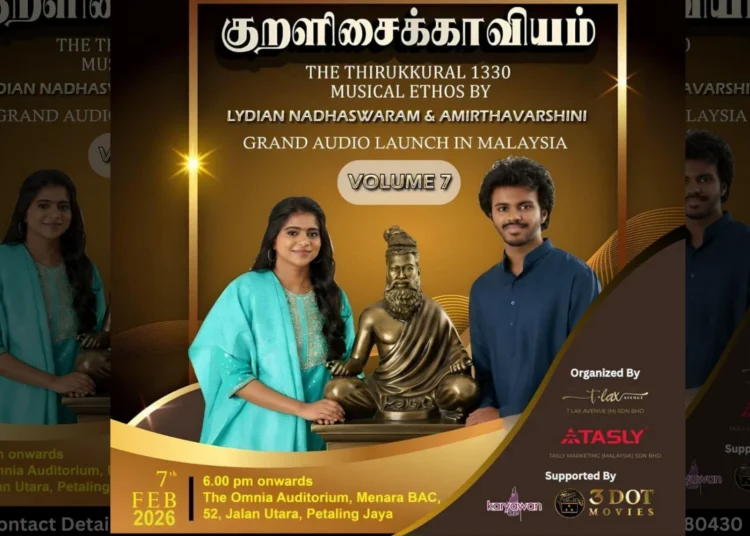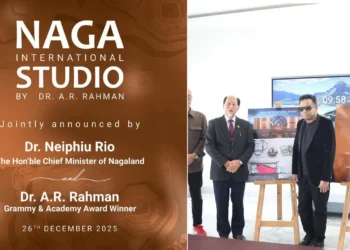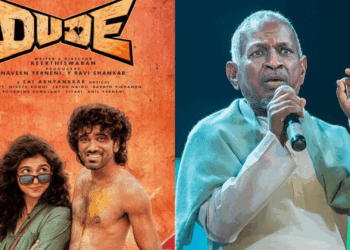After two decades as a music composer, with the forthcoming musical 99 Songs, AR Rahman has widened his involvement in filmmaking by becoming a writer-producer.
The Oscar-winning composer recently engaged with 15 media houses from Malaysia & Singapore in an exclusive arranged by Sony Music India & Sony Music Malaysia. This engagement, let to an insightful and inspiring conversation about the movie, which he explains is purely about the journey he traversed for 99 Songs.
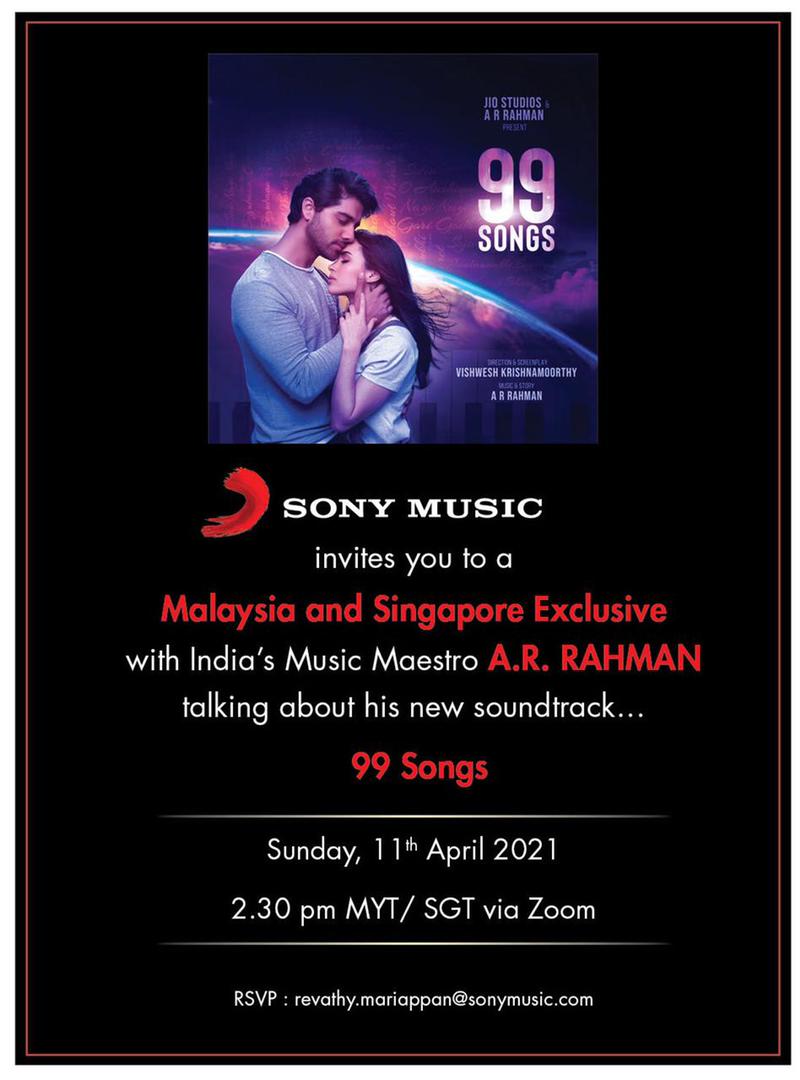
He also adds on, that 99 Songs is a musical love story that marks the musician’s debut as a film producer. Rahman said:
“I’m not creating content. I’m creating life, soul, and art.”
It’s a splendid collection of songs with outstanding vocals. The soundtrack, which includes 14 excellent songs in Hindi, Tamil, and Telugu, was also released in all three languages, which must have been a massive challenge. Each interpretation has its distinct features, and the three musical adaptations showcase a wide range of exceptional singers, artists, and lyricists.
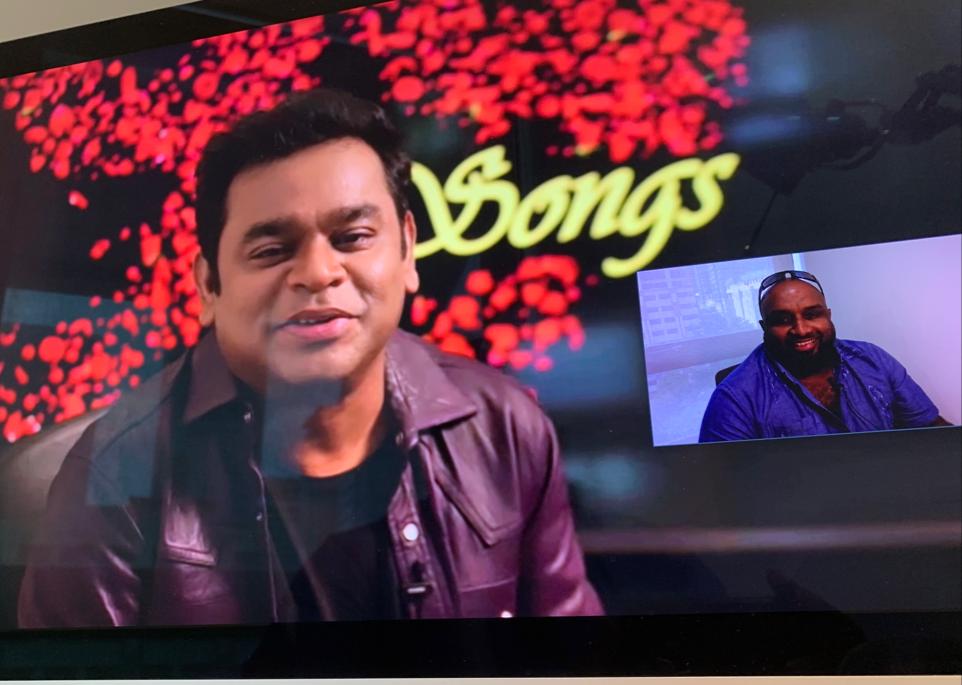
Talking about the spark for the story of 99 songs, the 54-year-old composer said that life and light encouraged him to write what he referred to as a fairytale. He goes through a lot more detail, but we don’t want to give everything away because it’s such a great response.
We at Varnam Malaysia had an opportunity to pose a question to AR Rahman based on his upcoming musical film and here’s what he had to say:
Varnam Malaysia: In all his years as a music director, from 1992 to the present day, there must have been some Raagas that you swayed towards or used more frequently than others. What were those Raagas, and did history repeat itself with you using those Raagas in 99 Songs?
A. R. Rahman: For me personally, I think not everybody can play every Raaga. Some of them have mastered the tune and it can be more than that due to their experience level. I might be wrong in film music but for me, my favorites would be K.V. Mahadevan, Rajeswara Rao, Illyaraja, and many others.
To answer your question, my association with the Raaga scheme is based on my experience since I’ve worked with multiple music directors early in my career. I still remember, there was one lady who always insisted me to do things with Raagas and not to forget the amazing music director who is fondly known as Babu. For each episode, Babu had consciously made me work continuously around with Raagas.
Each movie is full of Raagas. This kind of stuff is risky but at the same time, it’s exciting to try out.
There was a project where I have worked based on only Raagas. A research-based on Raagas was conducted for the past five to six years but I was waiting for 99 songs film to be released. If everything goes well, I probably will continue making pieces of music based on Raagas.
And this is where I believe Rahman’s brilliance shone through in the 1990s when he was able to take extremely difficult-to-harmonise ragas like Panthu Varali and create an ethereal yet atmospheric soundscape without having to fit it into any western-style pop song.
Let me, right at the very outset, clarify that a write-up on Rahman’s use of the essence of classical ragas is one must observe with the purity of raaga in the song. It’s all about how the music sounds in your headphones!
Helmed by debutant Vishwesh Krishnamoorthy, 99 Songs depicts a story about the art and self-discovery of a struggling singer who wants to be a successful music composer.
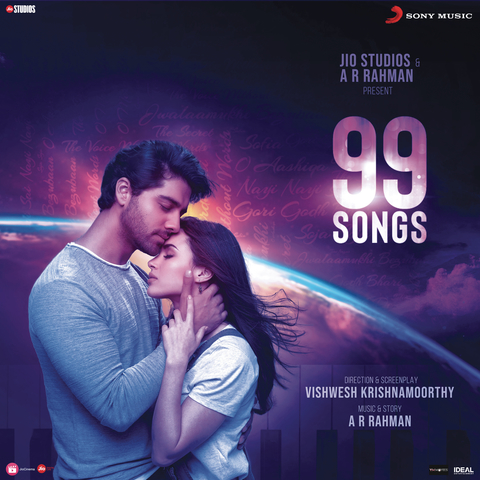
Ehan Bhat features alongside Edilsy Vargas in the musical film, slated to hit theatres on April 16th. Presented by Jio Studios, the film was produced by AR Rahman’s production company YM Movies and co-produced by Ideal Entertainment.
Follow us on Instagram, Facebook or Telegram for more updates and breaking news.


